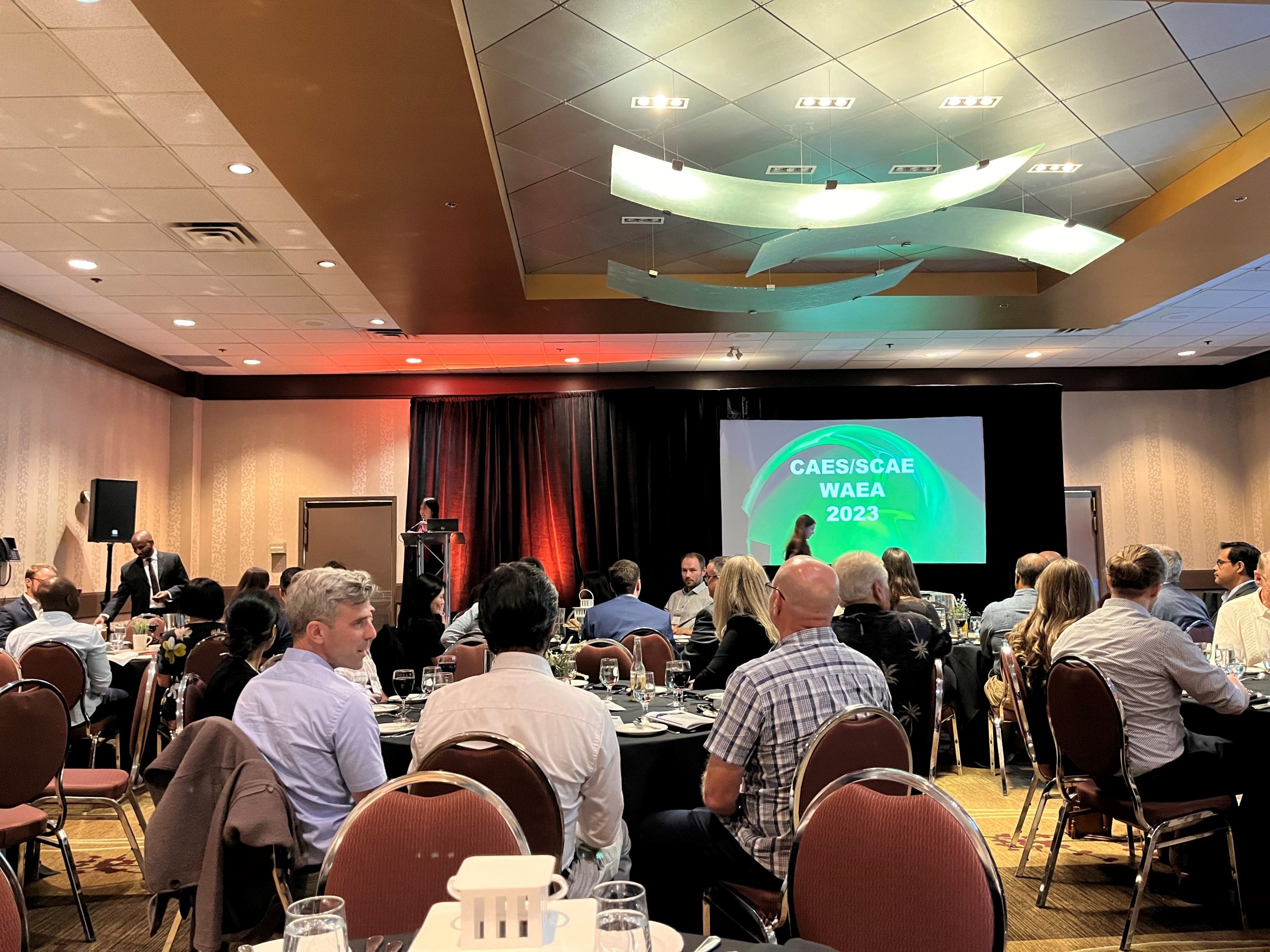The 2023 annual meeting of the Canadian Agricultural Economics Society/Western Agricultural Economics Association (CAES-WAEA) was held in Whistler, BC, on July 17. This meeting brought together professionals, researchers and enthusiasts in the field of environmental studies from all over the world from academia, government agencies, industry, and international organizations, expanding our professional network and exploring potential collaborations. The purpose of the meeting was to provide a platform for networking, knowledge sharing and collaboration to address the pressing environmental issues facing our society today.

Getu Hailu, CAES President (and Gentec collaborator), and Stephen Devadoss, WAEA President, welcomed participants and highlighted the many challenges (and opportunities) facing the agri-food sector. They pointed out that the conference program illustrated the wide-ranging and interconnected nature of the challenges, emphasizing the substantial economic research efforts being undertaken to tackle them effectively.
In theory, the carbon tax is the most efficient approach to address climate change. What do Canadian economists say?
Kathryn Harrison from the University of British Columbia presented a joint plenary session titled “The Challenge of Carbon Taxation: Economic Theory Meets Partisan Politics,” offering valuable insights into this complex issue. She mentioned that carbon taxes offer a cost-effective way to reduce carbon pollution. However, governments that propose carbon taxes invariably face political opposition from carbon-intensive industries, farmers, small businesses and voters. In some cases, such as Canada in 2008, carbon taxes were rejected outright. In others, including Australia and Alberta, carbon taxes were adopted but repealed. In still others, including France, carbon taxes have been frozen in response to public protest.
Jill E. Hobbs, University of Saskatchewan, emphasized that understanding how to measure and account accurately for environmental outcomes from agricultural production, such as greenhouse gas emissions, is essential for progress to be made. Incentivizing the adoption of beneficial management practices and optimal fertilizer use at the farm level are valuable tools for this effort.
How do genetic advancements affect Canadian agriculture and the environment?
Tristan Skolrud, University of Saskatchewan, emphasized that, in developed countries, farming occupies a smaller share of labour than ever as a result of technology, automation and genetic advancements. It is very important to understand the possible influence of automation on land tenure, the adoption of best management practices and land use, climate mitigation and adaptation, and perhaps, most importantly, potential changes in the control over farm-level decision making. It was good to hear genetics mentioned, as Gentec works hard to show how genetic improvement can help contribute to Canadian objectives in terms of reducing the footprint of livestock agriculture. As is often said the impact (of genetics) may be incremental or small, but it is cumulative and grows with every generation.
Attendees participated in various panel discussions, workshops and presentations that covered topics related to environmental studies, including climate change, sustainable development, biodiversity conservation, environmental policy, and more. Key highlights were:
- Biodiversity Conservation: Talks on the protection and restoration of ecosystems, conservation biology, and sustainable management practices.
- Environmental Policy and Governance: Panels on policy frameworks, government regulations, and international agreements concerning environmental issues.
- Sustainable Development: Presentations on strategies for achieving sustainable development, balancing economic growth with environmental considerations, and fostering social equity.
- Energy and Resource Management: Discussions on the transition to clean and renewable energy sources, resource conservation, and sustainable energy policies.
- Consumer Preference for Plant-based diet and Consumer Behaviour and Novel Foods
Renowned experts in these fields shared their insights and research findings, sparking meaningful conversations and inspiring new ideas.
Whistler offered a stunning natural backdrop with its magnificent mountains and pristine alpine environment. This setting immersed attendees in nature and provided them with first-hand experiences and observations that are integral to understanding environmental issues. I left feeling better equipped to meet the challenges and seize the opportunities available through genetics and genomics.
Niloofar Pejman
Postdoctoral Fellow, Livestock Gentec

